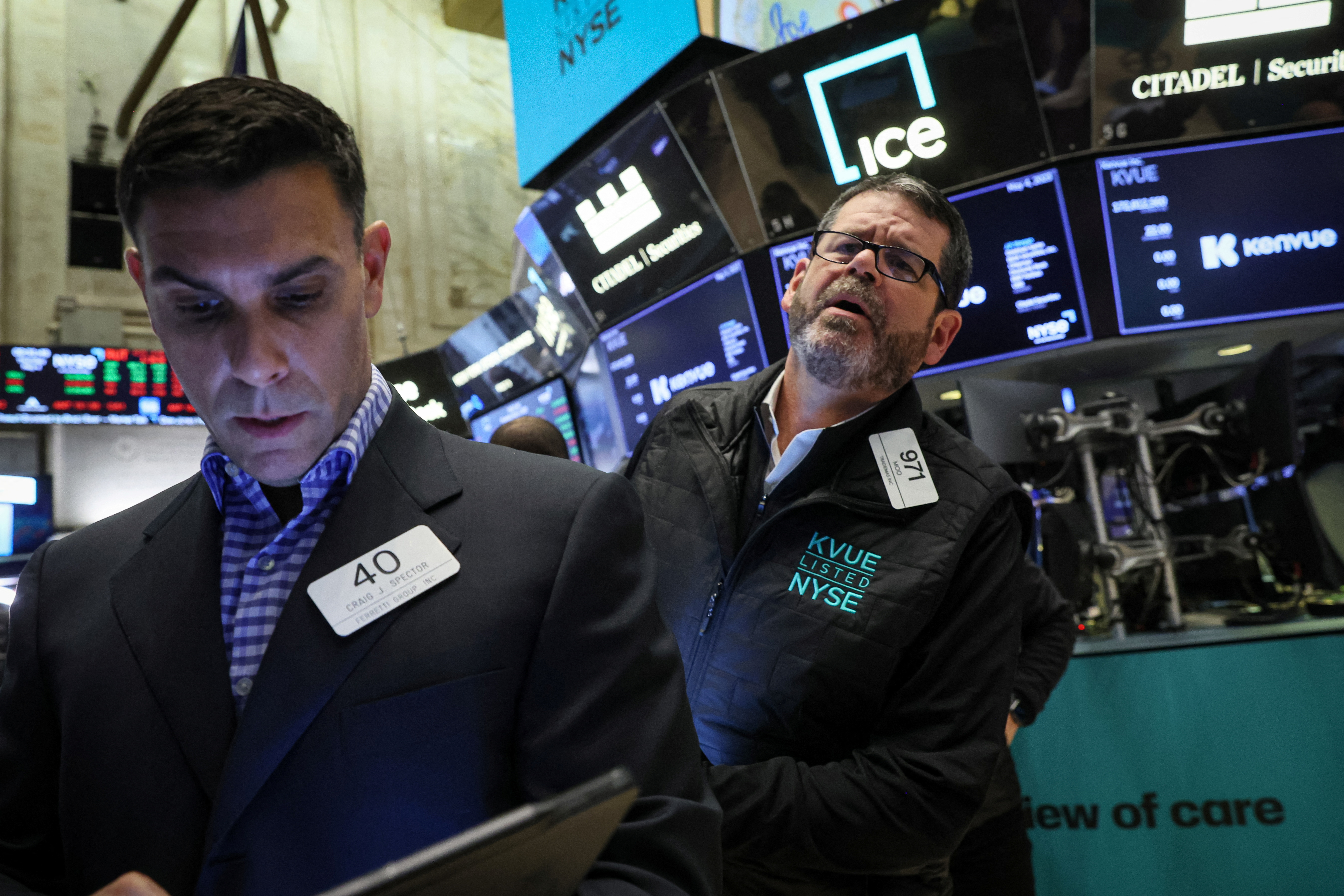
[1/3] Traders work on the floor of the New York Stock Exchange (NYSE) in New York City, USA on May 4, 2023. REUTERS/Brendan McDermid
SINGAPORE, May 10 (Reuters) – A gauge of global stock markets rose on Wednesday and bond yields fell after data showed U.S. consumer prices rose at a slightly slower pace than expected in April. .
The Consumer Price Index rose 0.4% after rising 0.1% in March, the Labor Department said. But in the 12 months to April, the CPI rose 4.9%, down from the 5.0% annual rate in March, a Reuters poll of analysts said.
Futures show the probability of the Fed raising rates again in June rose to 21.9% from 21.9%, according to CME Group’s FedWatch tool. Odds of the central bank cutting rates later this year also increased.
But the economy remains strong and it will take time to reduce inflation to the Fed’s 2% target, said Johan Grahn, chief ETF market strategist at Alliance Investment Management in Minneapolis.
“On the back of another strong jobs report in March, with the unemployment rate at 3.4%, 9.5 million jobs added, and wage growth continuing to warm, the Fed will focus on their inflation-killing agenda for the next few months.” Gran said.
“The Feds aren’t aiming to get rate policy right at the right time, they’re aiming to get it right over time,” he said.
Shelter, a major component of the CPI, was slightly weaker, giving relief to markets as some looked for a stronger number, said Priya Mishra, head of global rates strategy at TD Securities in New York.
“There is one big caveat, which is that the weakness came from hotels, not because of rents,” he said. “Maybe the market is happy here that inflation is coming down. It is, but we think it’s going to stick a little bit on the way down.”
The two-year Treasury yield, which typically moves in step with rate expectations, fell to 3.908% from 4.05% before the CPI news. Benchmark 10-year notes fell 8.1 basis points to 3.441%.
The dollar retreated on expectations that the central bank would pause its interest rate hikes to curb high inflation, while crude oil futures gave up early gains after the release of data on rising US inventories showed weak demand.
The dollar index fell 0.20% and equity markets rose as CPI data suggested the central bank’s most aggressive rate hikes in four decades were yielding results.
MSCI’s US-centric gauge of stocks worldwide (.MIWD00000PUS) closed up 0.20%, while the pan-European STOXX 600 index (.STOXX) fell 0.38%.
Stocks were mixed on Wall Street. The Dow Jones Industrial Average (.DJI) fell 0.09%, the S&P 500 (.SPX) rose 0.45% and the Nasdaq Composite (.IXIC) added 1.04%.
Rival Microsoft Corp ( MSFT.O ) rose 1.7%, helped by a 4.1% gain in Nasdaq Alphabet ( GOOGL.O ) as the company unveiled more artificial intelligence for its core search product.
Headwinds remain for the world’s largest economy as detailed talks on raising the US government’s $31.4 trillion debt ceiling begin Wednesday. The Treasury Department has warned that a disruptive default could come as soon as June 1.
China crackdown
Foreign exchange markets were treading water as markets weighed rhetoric from policymakers against traders’ hopes for a cut in US interest rates.
The European Central Bank’s key interest rate is nearing its peak, but further adjustments are still necessary, ECB Governing Council member Mario Centeno said on Wednesday, adding that he expects rates to ease sometime next year.
The euro rose 0.19% to $1.0981.
China’s weak import figures for April kept Chinese and Hong Kong stocks on hold for a second straight session, with investors worried that the market’s recovery since the reopening of the economy is fading into an uneven recovery.
Hong Kong’s Hang Seng fell 1.3% and the yuan fell to a two-week trough.
The apparent crackdown on companies performing due diligence has shaken the sector and worried investors. CICC Capital, a unit of top Chinese investment bank China International Capital Corp ( 3908.HK ), has stopped using consultancy Capvision, Reuters reported.
U.S. crude fell 1.6% to $72.56 a barrel, while Brent fell 1.3% to $76.41.
Gold prices fell as the CPI data was seen by some investors as mixed and spurred profit-taking.
U.S. gold futures were down 0.3% at $2,037.10 an ounce.
Editing by Simon Cameron-Moore
Our Standards: Thomson Reuters Trust Principles.